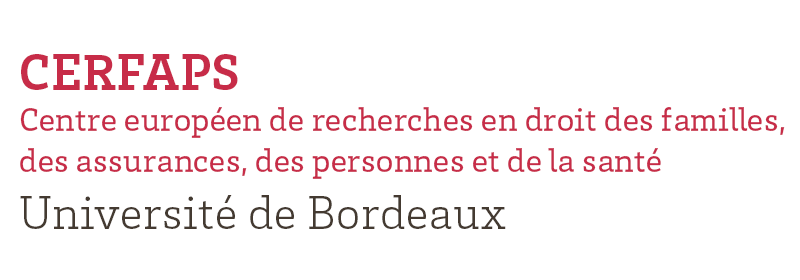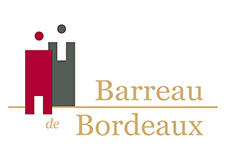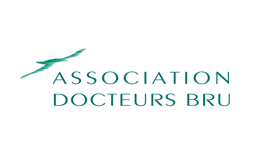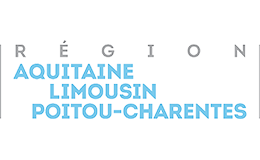Mineur et secret
Claire Quennesson.

Thèse Droit, dactyl., Bordeaux, 759 p.
Soutenue le 11 décembre 2017
Jury : Laurent Bloch, université de Pau et des pays de l’Adour ; Philippe Bonfils, Aix-Marseille université, rapporteur ; Françoise Dekeuwer-Défossez, université Lille 2 Droit et santé, rapporteure ; Frédérique Eudier, université de Rouen-Normandie ; Adeline Gouttenoire, université de Bordeaux, directrice de recherche ; Jean-Christophe Saint-Pau, université de Bordeaux
Résumé / Abstract
Le secret est une notion ancienne, ancrée dans notre législation, qui est généralement le fait des majeurs. Relier le mineur au secret suppose de préciser comment la minorité influe sur le droit au secret dont toute personne - y compris lorsqu’elle est mineure - est titulaire qu'il s'agisse de l'étendue du droit au secret plutôt plus réduite que pour les majeurs, que de l'exercice de ce droit qui, comme tout droit du mineur est différent et plus complexe.
Garder un savoir caché suppose un certain degré de capacité. Or, le statut particulier reconnu au mineur, sujet de droit vulnérable soumis à l’autorité parentale, créé un doute sur sa possibilité de se prévaloir d’un secret. La consécration d’un tel droit pour le mineur n’est pas si évidente et fait l’objet de controverses. Ainsi, le législateur y répond de manière éparse sans en établir une théorie générale applicable aux mineurs. Selon les hypothèses, le droit au secret du mineur passe en effet d’une inexistence à un droit lui consacrant une réelle autonomie.
Si le secret est en général une protection, ce qui en fait un droit affaiblissant le pouvoir parental, il peut aussi exposer l’enfant à un réel danger et même l’empêcher d‘accéder à une information le concernant. La richesse de la notion du secret se traduit ainsi spécifiquement lorsque le mineur en est l’objet. Sa vulnérabilité et son incapacité imposant une protection accrue, justifie de réduire le secret ou au contraire de l’étendre. En réalité la mise en œuvre du secret du mineur est différente selon que ce dernier se situe dans une relation avec un tiers ou dans ses relations avec ses parents.
The secret is a former notion, anchored in our legislation, which is made generally adults. To bind the minor with the secret supposes to specify how the minority influence the right to secrecy every person of which - including when she is minor - is a holder, that it is about the extent of the right to secrecy rather more reduced than for the adults, that of the exercise of this right which, as any right of the minor is different and more complex.
To keep a hidden knowledge supposes a certain degree of capacity. Yet, the particular status recognized by the minor, the subject of vulnerable right submitted to the parental authority, generates a doubt on its possibility to prevail of a secret. The consecration of such a right for the minor is not so obvious and is controversial. So, the legislator answers it in a scattered way without establishing a general theory applicable to the minors. According to the hypotheses, the right to secrecy of the minor indeed passes of a non-existence in a right dedicating him a real autonomy.
If the secret is generally a protection, what makes it a right weakening the parental power, he can also expose the minor to a real danger and even prevent him from reaching an information concerning him. The richness of the notion of the secret is so specifically translated when the minor is the object. Its vulnerability and its incapacity imposing a superior protection, justify to reduce the secret or to spread it. In reality the implementation of the secret of the minor is different depending on whether this one is situated in a relation with a third party or in its relations with his parents.
Mots-clefs / Keywords
Mineur, Secret, Secret professionnel, Vie privée, Anonymat, Protection de l’enfance, Danger, Vulnérabilité, Incapacité, Révélation, Maltraitance, Confidence, Secret des origines, Autorité parentale, Information, Soins confidentiels, Protection
Minor, Secret, Professional secret, Privacy, Confidentiality, Anonymity, Child protection, Danger, Vulnerability, Inability, Disclosure, Abuse, Confidence, Secret of origins, Parental authority, Information, Confidential care, Protection
Contact
Claire Quennesson
Université de Bordeaux - CERFAPS - 16 avenue Léon Duguit - CS 50057
F 33608 Pessac cedex
+33 (0)5 56 84 54 90
Contacter par courriel






